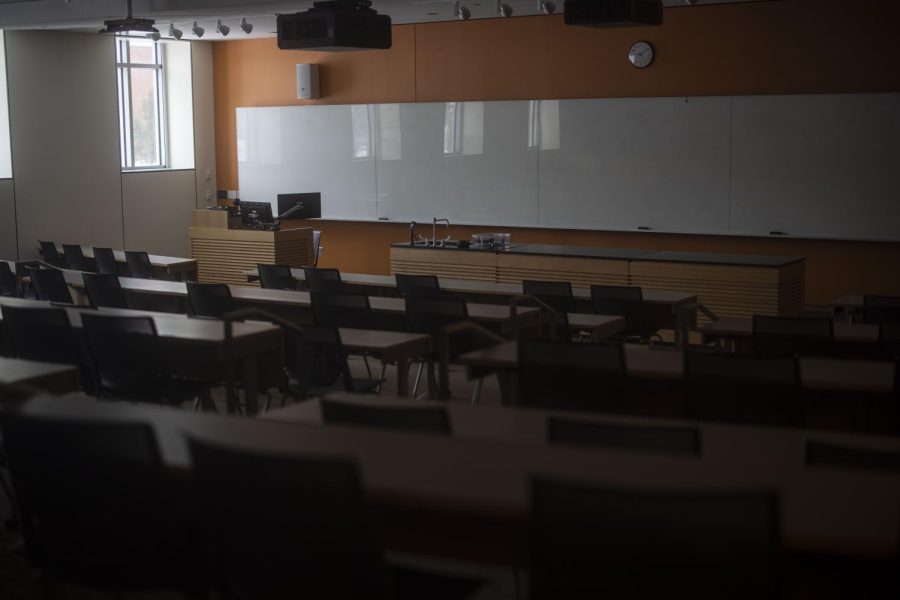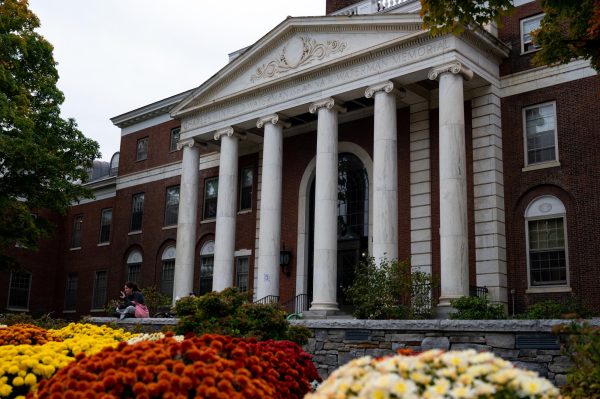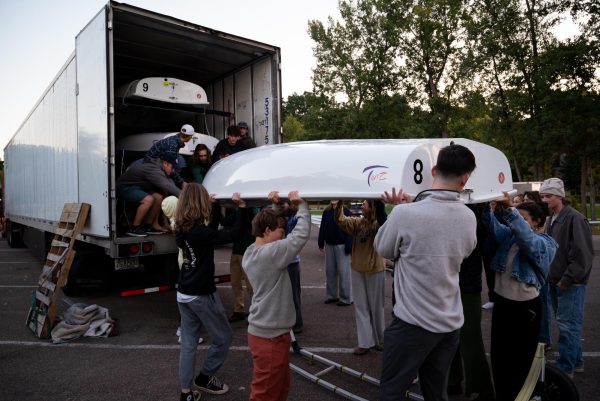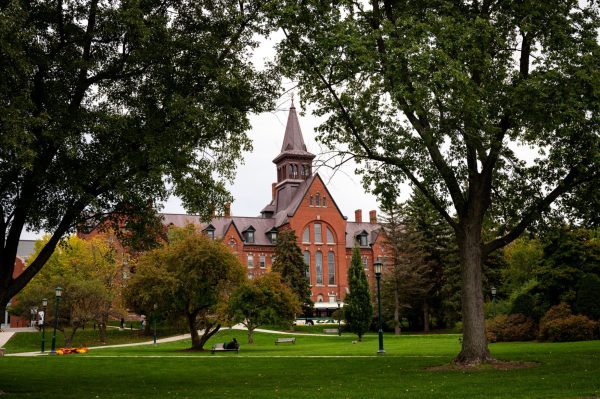National Society for the Advancement of Chicanos/Hispanics and Native Americans in Science officially recognized at UVM
A classroom on the first floor of Innovation Hall Jan. 13.
The National Society for the Advancement of Chicanos/Hispanics and Native Americans in Science officially became a recognized chapter at UVM, according to a March 21 UVM press release.
The SACNAS chapter at UVM was originally founded in 2019 to create a community of diversity and inclusion for students and just gained recognition by the national society, according to the press release. It is the first-ever SACNAS chapter in Vermont.
“Leading a SACNAS Chapter at UVM is a fantastic opportunity to foster a supportive and welcoming community driven by diverse cultural values while providing professional opportunities for our members,” said PhD candidate Natalia Aristizábal, current president of the UVM SACNAS chapter.
The mission of the society highlights student-led events to create career building opportunities for undergraduate students, graduate students and postdoctoral students who are the least represented in STEM, Aristizábal said.
These events may include things such as cross-disciplinary networking, community outreach, graduate school workshops and academic support, she said.
While the Hispanic and Native American populations continue to grow, their presence in STEM occupations remains small, according to the press release.
SACNAS national society created the national network because diverse voices bring creative solutions to scientific problems, their website stated.
The national society consists of over 8,000 members, 300 trained leaders, 133 student and professional chapters and a community of support greater than 28,000 people, according to the press release.
UVM’s chapter of SACNAS has123 members, including supporters, that span from undergraduate to faculty, according to the press release. They represent both natural and social scientists in different stages of their careers.
“At SACNAS, we understand that diverse voices bring creative solutions to our world’s most pressing scientific problems,” the national society’s materials stated. “That’s why we’re building a national network that is innovative, powerful, and inclusive. Our programs and events train and support the next generation of diverse STEM talent.”







